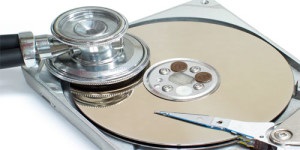Some of us know that terrible feeling. Your computer crashes and you are left wondering if you have just lost all your hard work, pictures, and life from the past few months (or even years!). No one likes this feeling and we certainly want to help you avoid it, but can you? That’s the question we plan to answer for you today!
So, let’s start with the big question: Can you even recover your data? The answer is yes! In fact, sometimes your data isn’t lost at all and only needs to be accessed some other way. If you’re having trouble accessing your data, it may be because you’ve accidentally deleted an important folder and/or software on your computer.
 The second most common is one that usually has people crying over their computer- Hard Drive failure. If this occurs, often times you will need professional help to gain your documents back. We all need a little help sometimes and there is no shame in taking your computer in for a check-up or, in this case, a complete over-haul.
The second most common is one that usually has people crying over their computer- Hard Drive failure. If this occurs, often times you will need professional help to gain your documents back. We all need a little help sometimes and there is no shame in taking your computer in for a check-up or, in this case, a complete over-haul.
The first important step in recovering your data is to shut down the machine connected to your drive that you’ve deleted data from. This will allow your machine to be “safe” while you are trying to access those deleted files. You should also try cloning your drive (there are several different ways to do this). This should always be done from a different machine or at least booted from something other than the drive in trouble. Now that you’ve created your clone, scan it for different recovery programs. There are several different programs you can choose one and usually there is always one to fit your budget, computer, and life style. EaseUS is a good free option, while Acronis works well if you want to shell out a few bucks. This is all good and well if you’ve only deleted the software or program, but what do you do if your computer or machine isn’t even reading the drive at all?
What if the drive is completely dead? Don’t panic! We have some solutions for you to try. If the drive doesn’t do anything when you apply power to it, it is 99% a PCB issue. With older drives, sometimes you could find a matching PCB from another matching drive to work with your device. However, on new drives, technology has changed and each drive contains information unique to the drive it’s attached to. Simply swapping the PCB with the match has almost no chance of working and can be outright unsafe for your data and computer itself. Please be aware that if your driver is spinning up or making clicking noises, this is a sign of extreme problems and will require professional help. This will require your drive to be opened and cleaned in a professional and stable setting. Definitely one for the pros !
We hope this information was helpful, fun and informative. Obviously, there is a lot more to cover than just these areas but we find that laying out a few options helps keep people at ease when dealing with data loss. Feel free to stop by or call us today with any questions you have !
